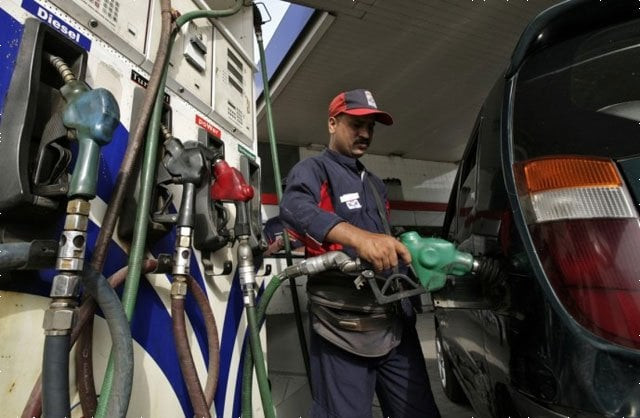Lab test findings: Oil refineries, importers use chemicals to boost petrol quality
This leads to choking of vehicle engines, affects human health and environment

This leads to choking of vehicle engines, affects human health and environment. PHOTO: REUTERS
In order to conduct the tests, Ogra and HDIP took samples of domestically produced and imported gasoline (petrol) which showed the application of chemicals to give a boost to the quality of Research Octane Number (RON) 90 and 92 gasoline to save cost.
However, the practice was casting an adverse impact on human health and was also leading to choking of vehicle engines.
How soaring US oil exports to China are transforming the global oil game
The tests were undertaken after Honda Atlas Cars Pakistan lodged a complaint with the regulator and claimed that RON 92, 95 and 97 motor gasoline had high manganese content.
This, Honda said, resulted in blocking of catalytic converter, engine knocking due to low-quality fuel and adverse impact on human health.
The automaker revealed that because of the poor-quality fuel it had to suspend production of its latest variant, the 1.5-litre Turbo VTEC.
In addition to Honda, Hascol oil marketing company also complained that refineries were still using chemicals like Methyl Tertiary Butyl Ether (MTBE), Methylcyclopentadienyl Manganese Tricarbonyl (MMT) or alcohols that had a high RON to achieve desired specifications for motor gasoline.
According to the company, the refineries as well as suppliers to Pakistan were adding high MMT dosage to motor gasoline in order to meet the revised RON specifications and save cost as producing RON 90 and 92 would be expensive.
MMT increases manganese content in motor gasoline that reacts with catalytic convertor and chokes it besides having adverse effect on human health due to air-borne metallic particles.
Following such complaints, a committee was constituted comprising representatives of the HDIP, Ogra, Petroleum Division and Oil Companies Advisory Committee.
In the samples of RON 90 and 92 gasoline tested by Ogra, the results indicated that locally produced gasoline had concentration of manganese in the range of 63.31 to 315.5 parts per million (ppm) whereas the concentration of iron was in the range of 6.2 to 36.1 ppm.
In the imported gasoline, the concentration of manganese was 1.62 ppm and iron 63.88 ppm.
Khalifa Coastal: PARCO conducts feasibility study on refinery project
Owing to the higher manganese and iron concentrations, the committee decided to test more samples of domestic and imported gasoline.
HDIP collected samples of RON 90/92 gasoline and submitted its test report. It also indicated high concentrations of manganese and iron in local and imported gasoline which showed that the refineries and suppliers were using organometallic additives - manganese-based MMT and iron-based Ferrocene - to meet the desired RON 90 and 92 specifications.
It commented that the addition of these chemicals had an adverse impact on engine parts, environment and human health.
Published in The Express Tribune, March 10th, 2018.
Like Business on Facebook, follow @TribuneBiz on Twitter to stay informed and join in the conversation.



















COMMENTS
Comments are moderated and generally will be posted if they are on-topic and not abusive.
For more information, please see our Comments FAQ